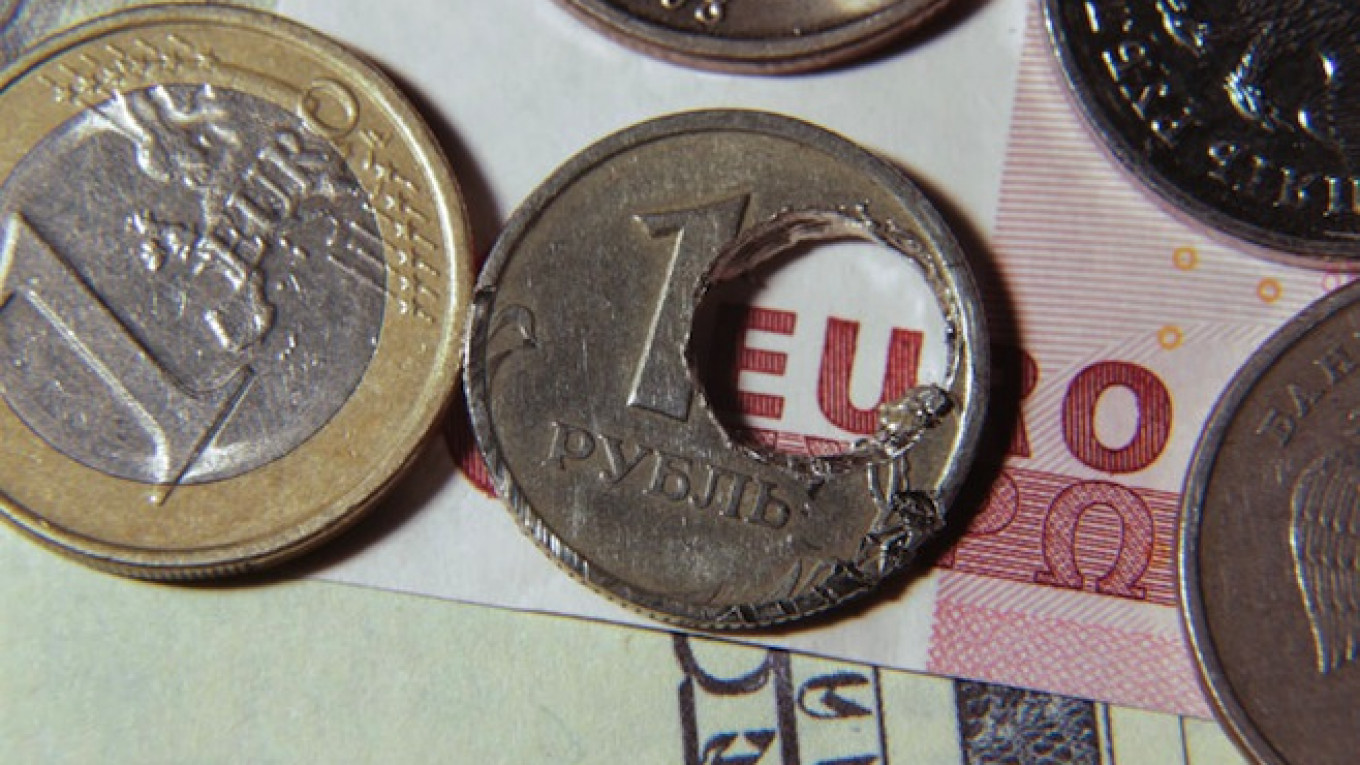The ruble weakened to a new record low against the dollar on Thursday as the latest falls in global oil prices threatened to worsen Russia's economic slump and the Kremlin sought to play down fears of a currency collapse.
The ruble plunged from about 82 to the U.S. dollar to more than 85 shortly after midday — taking its losses so far this year to 14 percent, and marking its weakest since redenomination in 1998.
The Russian currency also fell 3 percent on Thursday to 91.8 against the euro, close to record lows seen during a market meltdown in December 2014.
Kremlin spokesman Dmitry Peskov played down the movements: “I wouldn't use the word 'collapse.' The exchange rate is certainly changing, it is volatile, but it is nowhere near collapse,” he said, the Interfax news agency reported. He added that the Central Bank was monitoring the situation and could take measures if needed.
The ruble's falls come as the price of Brent oil fell below $28 per barrel. Global oil prices have fallen some 70 percent over the last 18 months due to global oversupply and fears over economic growth in China, a key driver of global demand. Oil is Russia's most important export.
Speaking at the economic forum in Davos, former Finance Minister Alexei Kudrin warned on Thursday that oil prices could fall to $16 per barrel, according to the TASS news agency.
That would further weaken the ruble, fuel inflation and likely extend Russia's recession into a second year.
Other oil producing ex-Soviet countries have also seen their currencies weaken sharply, with Azerbaijan introducing capital controls earlier this week to control the currency's decline.
Russia's Central Bank has said it would intervene on markets only if the falling ruble threatened financial stability.
So far, however, there has been no repeat of the panic of late 2014 when the rapid weakening of the ruble almost caused a run on banks. Russians have remained calm, with First Deputy Prime Minister Igor Shuvalov quoted by the Rambler News Service advising people on Wednesday to ?€?spend less time looking at exchange rates.?€?
Contact the author at? p.hobson@imedia.ru
A Message from The Moscow Times:
Dear readers,
We are facing unprecedented challenges. Russia's Prosecutor General's Office has designated The Moscow Times as an "undesirable" organization, criminalizing our work and putting our staff at risk of prosecution. This follows our earlier unjust labeling as a "foreign agent."
These actions are direct attempts to silence independent journalism in Russia. The authorities claim our work "discredits the decisions of the Russian leadership." We see things differently: we strive to provide accurate, unbiased reporting on Russia.
We, the journalists of The Moscow Times, refuse to be silenced. But to continue our work, we need your help.
Your support, no matter how small, makes a world of difference. If you can, please support us monthly starting from just $2. It's quick to set up, and every contribution makes a significant impact.
By supporting The Moscow Times, you're defending open, independent journalism in the face of repression. Thank you for standing with us.
Remind me later.


